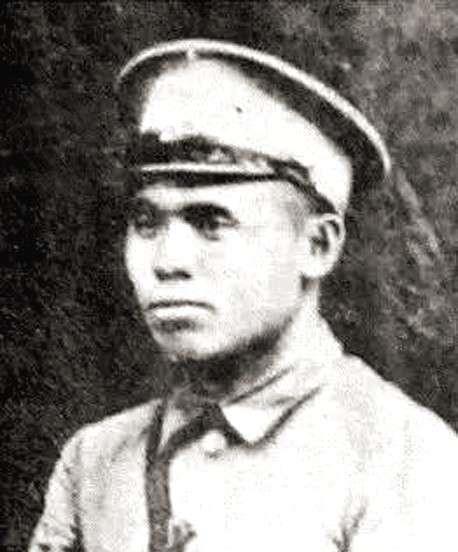In the War of Resistance Against Japan, there were only a few defeated commanders who were executed by Chiang Kai-shek's orders, but Chen Munong, commander of the 93rd Army, was one of them.
Why was Chen Munong executed by order of Chiang Kai-shek?
Speaking of which, it is deserved.

In August 1944, after the Japanese occupied Hengyang, the defensive battle of Guilin immediately began. The Japanese and Chinese troops engaged in outpost battles at Longhuguan and Huangshahe on the border between Hunan and Guangxi.
At this time, Guangxi belonged to the Fourth Theater of Operations, and the commander was Zhang Fakui. Zhang Fakui expected that when the Japanese army attacked Guangxi, the main direction of attack would be Guilin, so he deployed around Guilin on the border of Xianggui. Among them, Jeonju is located in the northeast of Guangxi, known as the gateway to northern Guizhou, and is a key place for the defense of Guilin.
However, Jeonju City is in the basin, one is not conducive to defense, the second is no military fortifications, but in the north of Jeonju 30 miles away from the Huangsha River, the terrain is good, easy to defend and difficult to attack, so Zhang Fakui ordered the Huangsha River to be the key defensive area, and handed over to the 93rd Army to defend.
The commander of the 93rd Army was Lieutenant General Chen Mu Nong.
In September, the Japanese army began a frontal attack on the Huangsha River. Unexpectedly, the vanguard guard of the 93rd Army resisted slightly, and immediately retreated. The other Japanese army swerved back to the right side of the 93rd Army. Chen Munong and the Japanese army fought only one night, and then they panicked and disregarded the responsibility of defending the territory and led the officers and men to retreat to the Da rong river.
On the way, although the 93rd Army made some successive resistances at Yanguan and Xing'an, it was fought with small troops, only some sporadic small battles, so it did not play a role in delaying the advance of the Japanese army, causing the Japanese army to drive straight into Guilin.
The 93rd Army not only retreated from the battlefield, but also looted the belongings of the fleeing civilians.
In this way, the fleeing people also had great opinions about the officers and men of the 93rd Army, and complained bitterly.
When the 93rd Army retreated to the Darong River Defense Line, the 31st Army was stationed here. The leader of the 393rd Regiment listened to the complaints of the common people, became furious, and ordered: "Surrender their weapons." ”
However, one of the battalions he sent failed to surrender the 93rd Army's weapons.
Why?
It turned out that these soldiers had taken a detour and fled.
Chen Munong took the lead in escaping, and also connived at the robbery of the common people by his men. As a result, as soon as Chiang Kai-shek was investigated, no one from above and below spoke for him, and even Bai Chongxi, Zhang Fakui, and others heard that he had connived at his subordinates to rob Guangxi's fellow villagers (Bai Chongxi and others regarded Guangxi as their own range of strength and Guangxi people as their foundation), and they were even more furious: "It is better to be a beast!" ”
On the verge of death, Chen Mu Nong shouted, "Chief Zhang killed me!" ”
Chen Munong was born in the first term of Huangpu, with the rank of lieutenant general and a protégé of Chiang Kai-shek, who became a senior general of the Kuomintang army who was shot in the late stage of the War of Resistance Against Japanese Aggression because of the escape of the arsonists.
It is worth saying that Chen Munong is still a Native of Sangzhi, Hunan, and he is a fellow countryman with He Long, commander of the 120th Division of the Eighth Route Army, who resolutely resisted Japan to the end.